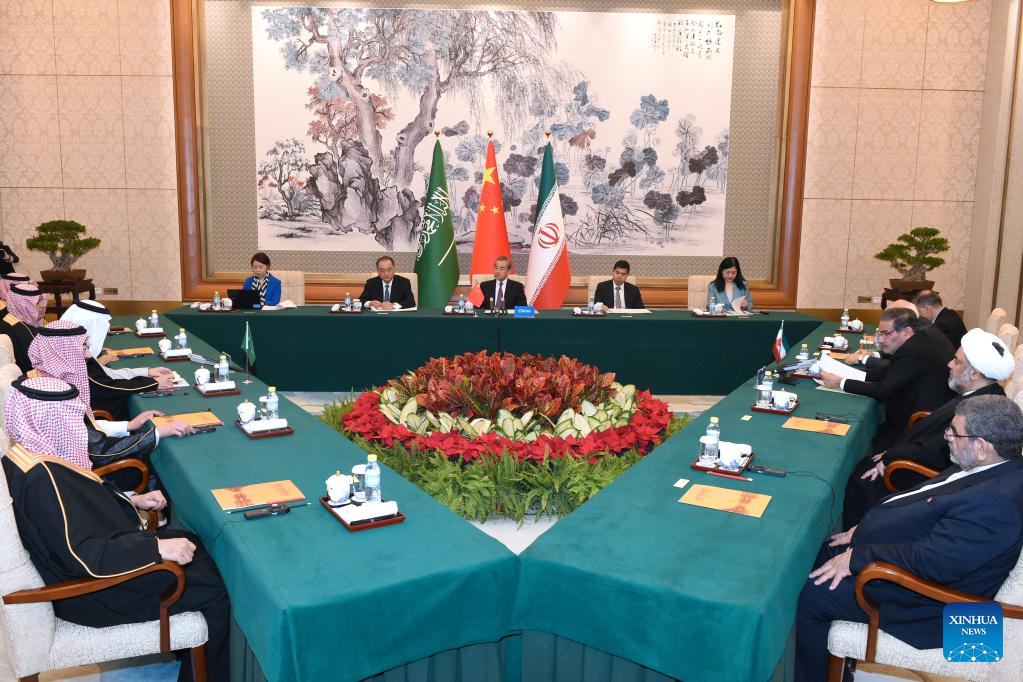
Wang Yi, a member of the Political Bureau of the Communist Party of China (CPC) Central Committee and director of the Office of the Foreign Affairs Commission of the CPC Central Committee, presides over the closing meeting of the talks between a Saudi delegation and an Iranian delegation in Beijing, capital of China, March 10, 2023. (Xinhua/Luo Xiaoguang)
The restoration of diplomatic relations between Saudi Arabia and Iran achieved with Chinese mediation is historic for the Middle East, Asia, and the world, and it will be an important turning point in the Middle East in terms of international relations, said Chen Jin, lecturer from the University of International Relations, adding China's image as a responsible power is also highlighted and it especially shows China's will and ability to play an active role in international issues.
Through a China-brokered deal, Saudi Arabia and Iran on Friday agreed to resume diplomatic relations and reopen embassies and missions within two months.
"To start with its significance, we need to understand the relationship between Saudi Arabia and Iran,” said Chen. "There are complex structural contradictions between Saudi Arabia and Iran that stem from religion, geopolitics, and international relations."
"Other conflicts in the Middle East, including conflicts between Israel and Islamic countries, Sunnis and Shiites, pro-American countries and anti-American countries, secular reformers and religious conservatives, are also projected into the conflicts between Iran and Saudi Arabia through various ways," she said.
She added that the tensions between the two countries have also affected regional hotspot issues concerning Yemen, Syria and Libya, stressing that the conflict also has a comprehensive impact on international relations in the Middle East.
The restoration of their diplomatic relations will be an important turning point in the Middle East for three potential reasons, she said.
First, it may bring a turning point in the political settlement of the war in Yemen, and it is also positive for the mitigation and even final settlement of other hotspot issues in the region, such as the civil wars in Syria and Libya. It is expected that this will lead to further improvement of the relations between Syria and other Arab countries.
Second, it might bring a new wave of reconciliation between Arab countries and Iran. At present, many countries including Iraq, Oman, Lebanon, the United Arab Emirates, Qatar, Turkey and Bahrain have welcomed the resumption of diplomatic relations between Saudi Arabia and Iran.
Third, it could serve as a model for conflict resolution among countries through dialogue and consultation.
As for the reason that China was able to provide a more secure environment for dialogue, she believed that China is an important external force in the Middle East. With the development of Belt and Road Initiative(BRI), China's image as a responsible power is also highlighted and this China-brokered deal especially shows the country's will and ability to play an active role in international issues.
In the future, China and the Middle East countries will continue to build the BRI with high quality and carry out more in-depth cooperation in various fields such as economy and trade, infrastructure construction, energy, high technology, finance, health and people-to-people and cultural exchanges through the China-Arab Cooperation Forum and other cooperation mechanisms, she said.
(The opinions of the interviewee reflect his/her personal views and are not necessarily the views of the People's Daily.)


